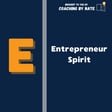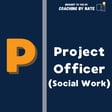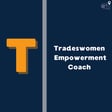Become a Creator today!Start creating today - Share your story with the world!
Start for free
00:00:00
00:00:01

Talent & Communications Adviser, an unmissable episode! Lets talk everything recruitmnet!
Join Steph, Talent & Communications Adviser, for an unmissable episode! If you’re on the hunt for a new job, you won’t want to miss this. Steph shares the secrets on what recruiters and hiring managers are really looking for in your applications and interviews. Plus, she takes us behind the scenes of her journey in the fast-paced world of recruitment.
Transcript
Introduction to 'A to Z Jobs' Podcast
00:00:05
Speaker
Welcome to A to Z Jobs, the podcast that delves into the fascinating world of careers one profession at a time. In each episode, we'll deep dive into a specific profession, exploring its history, requirements, challenges, and rewards. So get ready to expand your horizons, challenge your perceptions, and discover a world of possibilities. I'm Roxy. And I'm Nate. And we're excited to host you on this journey.
Meet Steph: Talent Advisor Insights
00:00:31
Speaker
This week we meet Steph, a seasoned talent advisor within a leading global talent and marketing organization based in Sydney, where she specializes in sourcing top tier creative and digital talents. With a keen eye on industry trends and technology, she navigates the dynamic world of recruitment, acting as the vital link between her company and the ever evolving market. In her podcast Steph is shedding light on the essential role of communication and adaptability in her field.
00:00:58
Speaker
Reflecting on her own journey, she shares the determination to escape a job she hated and swiftly rising through the ranks by seizing opportunities. Hi Steph, welcome to the podcast. Hey Rox, thanks for having me. It's great to have you.
00:01:12
Speaker
Let's dive straight in and ask you the first question. What do you do for a living? I work as a talent advisor for a global advertising and marketing group here in Sydney. um I kind of specialize in the creative and and digital recruitment side of things. The wide and broad um amount of people I can imagine.
00:01:33
Speaker
A lot, yes. A lot of very different people. But I think that's what keep keeps the role fun is, you know, you do meet so many different personalities and, you know, hear a lot of, you know, a lot of personal stories along the way. Yeah, it's so much fun doing those interviews and hearing the personal stories and where they came from, how they got like what we're doing now. That's what inspired us. Exactly.
00:02:00
Speaker
What type of roles are they? Give us an example. What type of what type of advice are you giving? What type of roles? ah So in terms of the the roles that I'm looking after, it's everything from sort of client services to a lot of you know account executives, account managers, ah senior account directors, that sort of thing. um on the you know There's a lot of project management. um In terms of the creative profiles, it's a lot of graphic designers, UX, UI designers, and a little bit of out of tech.
00:02:37
Speaker
profiles so you know all of your development type people so a lot of web developers and app developers and that sort of thing. It's such a broad amount of knowledge for you to learn about as well and get to know the jargon and everything you talk to. It must be so exciting. It's a lot as soon as you get on top of on top of a lot of the jargon particularly in the tech side of things it changes and updates and you've got to learn it again so it's you kind of learning, relearning a lot of the skills with each brief that comes in, but it, you know, again, it keeps it interesting. Yeah, I was talking to um my boss at the moment and she was saying she used to work in finance and how boring it was.
00:03:23
Speaker
Because it was the same interview every time. You know, it's the same skill sets, the same things that you're looking for. And she said it's the same people. Yeah. Very different, very different approach approach to recruiting for those sorts of people. It's, it's nice to do the one off, but yeah, definitely couldn't do it full time. No.
00:03:46
Speaker
you go quite a variety there with with the different industries. So what, how does that work for day
Role Dynamics and Candidate Interactions
00:03:52
Speaker
to day for you? What does an average day look like in your world? A lot of emails.
00:03:58
Speaker
They always, always keep coming. um It's hard to sort of pigeonhole what a normal day looks like, but it's, it's just a lot of communication really. I'm, I'm really just the middleman between my company and the market. um So you know making sure that both both sides of that coin, you know making sure that their voices are heard. um
00:04:27
Speaker
you know there's yeah It's a lot of back and forth with communication. it's
00:04:35
Speaker
I don't even know what I do.
00:04:39
Speaker
So the communication changes, right? So someone says, I need this person. And then five minutes later, it's like, well, not technically that person, but a person like this in certain ways. And then the next day they're like, well, no, I need five of those, but no two maybe. The communication is where it just keeps looping.
00:04:59
Speaker
And everything changes and starts again. Yeah. And I think with time as well, you sort of learn what different people need you to be. So, you know, I would say with hiring managers that do often change their mind on what they want, they often just want someone to hear them out and then go back to their original plan the next day anyway. yeah You know, whereas on the other side of that conversation, you've got a candidate that's doing the same thing that's you know, yes, I want the job. No, I don't want the job. And again, it's it's often it's often learning or uncovering what it is that that person is hesitating on and playing into it a little bit and going, OK, well, let's unpack that, um you know, telling any of your personal experience, whether, you know, you've encountered that yourself while you're looking for roles or if you've had other candidates that, um you know, that have
00:05:55
Speaker
been in a similar situation and and explaining how that panned out for them. um It really is just listening. It's amazing that how a lot of people don't don't understand the the negotiation with managers and recruiters and advisors and and then the candidates themselves.
Market Trends and Evolving Skillsets
00:06:16
Speaker
I've been working with pits a few people that have been made redundant release recently and they're going through the job hunt process and they're getting frustrated going they don't sound like the company doesn't sound like they know what they want or they they've changed their mind and the job is now this and like it's quite a normal part of the process they're just as a as a candidate you don't see it that often but as a manager when you start meeting people
00:06:37
Speaker
and you're you're getting a sense for what skill sets are still available in the market and you're getting a sense of what actually needs to be done in the role, it's very normal for these things to change quite often. Yeah and I i think it's a huge issue in the industry at the moment. We don't have the upper hand anymore, the candidates very much um have all the power at the moment and You know, we're we're often dictated by what they want and what our businesses can even afford. You know, salary is a huge issue here in Australia at the moment. And, you know, I know that's felt widely across the world.
00:07:19
Speaker
um
00:07:22
Speaker
So, yeah, it is often a bit of a power struggle between the companies and the candidates. And the companies don't want to relinquish that power and they but the candidates know that they've got it. So it's, it's a really fine line to walk. Um, and you know, I think traditionally as well, you know, recruitment of often, you know, someone leaves a role recruitment aboard into, to find someone with almost a ah cookie cutter skillset. And we can't go to market like that anymore. And we're still very much in a bit of ah a learning, a learning cycle of,
00:08:00
Speaker
Well, how do we assess what skills we actually need moving forward as opposed to just replacing like for like, because it doesn't it doesn't move the business forward anymore. And quite frankly, those people just don't exist. um You know, the the candidates also want to keep moving and developing. And so everyone's so unique in what they've done before and what they want to do moving forward. It's not realistic to look look at that like for like candidate anymore.
00:08:28
Speaker
um Which, yeah, so it's definitely not surprising when you do hear those candidate feedbacks saying that, um you know, it seems like the company's a little bit wishy-washy and that probably is, you know, the recruitment team maybe not not communicating properly as well because they're also trying to work out what best practice is in those situations.
00:08:54
Speaker
um But yeah, those people, you're not alone. and With your um your job then, so you talk about recruitment, but you're not a recruiter. So recruitment is like a part of your sort of the scope of work that you do. ah I would say my title is kind of just a fancy way of saying recruiter, really. um But um it is definitely, no matter what your title is in in the field, it
00:09:24
Speaker
the actual recruitment function ultimately is a pretty small portion of what we do, um you know, going out, finding CVs and and talking to people and prospective candidates. It is very time consuming, but it's all the things in the background um that we do that no one sees. um So, you know, that that's often educating our hiring managers on, you know, what the market trends are at the moment.
00:09:53
Speaker
Um, you know, doing a lot of salary research at the moment, again, it's something, you know, recruitment agencies publish their annual salary surveys. And we used to be able to rely on that pretty well. But again, with how the market's moving at the moment there.
00:10:12
Speaker
You know, those surveys become redundant within weeks of them being published. It's it's insane. So it's, you know, a lot of a lot of educating ourselves on on what's actually happening out there, but then trying to, again, relay that back to the business and make sure that the business has an understanding and trying trying to align both of those sides. Yeah. Like you said, it's a lot of communication because you're going back to the hiring managers, but you're also triple checking that You do need that like for like person or if they need to branch off to create a new role entirely and that whole process of how you would do that and where you would look for that and the salaries and it's incredible. and Absolutely. And you know, at the moment we're often telling people news that they don't want to hear, you know, it is, it is a lot of, there are a lot of very tough conversations that have to be had and there's a lot
Recruitment Strategies: Local and Global Approaches
00:11:11
Speaker
of
00:11:11
Speaker
prep work and a lot of strategy around how we actually deliver that message that again no one often sees because it's not the sexy part of the work and it's the part that you know it's your every day so you get a little bit used to it and then when you actually make that higher it's really nice and orphaned for you but um but you do you get stuck into having those hard conversations constantly and and and pushing it for you know, the future of the company, not necessarily, you know, that department as well. You're thinking of everything as a whole as well. Yeah, absolutely. Are you working mostly with like local candidate, local market candidates, or are you trying to source candidates from overseas and bring them across to do work or? A little bit of both. It is mostly local candidates in this role.
00:12:03
Speaker
um But there are certain roles that we we do have to go international for, often for more tech focused roles. um The business, like being global as well, although we do have like a global recruitment team, we do often share the workload as well. So if you know if our if our colleagues in the US ah are struggling and and we're you know, we have a pretty light capacity. We'll often help um with some of their open roles as well. It's great when you got multi-come, you know, multi-national companies and you can almost learn from each other. And I feel like in some, in some cases things happen to the US before they happen to Australia. So you can kind of prep for it in some ways. Yes, definitely. And just such, such different approaches to recruitment as well there. You know, they're often a bit more,
00:13:01
Speaker
Well, they're often a lot more professional over there throughout the process and the, you know, the candidates very much want to be wined and dined, so to speak. Whereas, you know, I find in Australia, it's it's very much, you know, it's a much more casual approach. They more so want to have a conversation with you and and get to know you a bit more personally.
00:13:23
Speaker
as opposed to just going straight to business and saying, all right, well, what have you got to give me? What are my bonuses and packages and relocations? Yep. Whereas at the beginning it's like, oh, I should mum! So did you get started in all of this? ah Just by chance, actually. Some might say it was divine intervention. um i I moved to Sydney um with a job that I absolutely hated and I told myself I would do anything to get out of it. Um, and yeah, it landed, landed a, an admin position at a recruitment agency. I don't remember applying for the job, but it was, it was by far one of the best jobs I've ever had. Um,
00:14:16
Speaker
So yeah, just starting starting as a you know as an office coordinator. And I was very fortunate that you know the director and and my boss at the time saw something in me. And you know I had the hunger and interest to so just keep learning. And she was more than happy to give me that opportunity. So it's very fortunate. did you Did you put your hand up for that or your approach? They said, hey, what about this over here?
00:14:46
Speaker
I was pushy. I was a very pushy young lady. i knew you know i knew i wanted to I knew I wanted to throw my hat in the ring and I wasn't afraid to ask for it at the time, which I think actually went a long way with that with that particular boss. I think she respected that approach. She was very no-nonsense. So yeah, it was great.
00:15:11
Speaker
That's good. When you get someone who reacts to that really well, you know, and then really respects it and sees they're firing you and wants to push you far, it's an unbelievable feeling. Yes, it is. Although she has set a very high bar for me moving forward, so it can work both ways. Was the admin role your first sort of, that's how you started your career your career or tell us more about your journey. Was there other roles you were doing before that?
00:15:40
Speaker
ah No, I was just working a casual retail role ah before that. um So, you know, I guess, you know, for for quite a long time, you know, since I was I was able to work, I was always in that kind of customer service industry. So, you know, that's really bread and butter of of what recruitment do. um So I guess you could say that from an early age, maybe I was destined to be where I am. um But, you know, i I really did just fall into it. I never even knew it was an avenue I could take. um You know, it's it's not really a big thing here. I think a lot of people I talk to are in the same boat as me. They just fall into it. um
00:16:28
Speaker
yeah so not yeah Yeah, so not really much of a journey. It just happened one night and I revved with it. I don't think I've ever met a recruiter who set out to be a recruiter. like it's sort of like They fell into it with those core skills, the communication skills, the customer skills, or they were just in a spot at the right place.
00:16:49
Speaker
like yes it
00:16:53
Speaker
100%. But if you were if you were somebody, you know, younger at the moment and decide actually I do want to be a recruiter. That is my dream. Is there is there a quicker way to do it? Is there a way? I don't know. Is there courses in recruiting or is it really just on the job training? It really is just okay. I found this on the web for is there. Sorry.
00:17:23
Speaker
not um Sorry, I'm not sure what you want me to change. Thanks, Siri. Oh my God, sorry.
00:17:39
Speaker
You should keep that in, that was hilarious. So if you were at the start of your career and you decided that being a recruiter was actually your your goal,
Recruitment Pathways and Misconceptions
00:17:55
Speaker
Is there a way to get into recruitment that is a bit more direct? Like, is there a course or is it really just on the job training? Um, I would say my path was the most direct. Um, you know, I, I wasn't in that admin role for very long. I think it was maybe three months until I started taking on some more consultant duties. Um, again, very fortunate. It doesn't, doesn't happen to everyone. Um, there's not necessarily.
00:18:24
Speaker
recruitment specific courses you can take. um You know, there might be some short courses. There's a lot of stuff on LinkedIn, ah LinkedIn learning, which are often quite helpful. um But I know, you know, anyone that has, has studied and fallen into recruitment, they tend to have done like business admin or you know HR specific courses and then found that they they enjoy the recruitment side of things. I wouldn't really say it's necessary though. um you know On the job training is is really everything that you need. um i would say I would say in terms of like create career progression or career development, you can definitely have a very long and fulfilling
00:19:19
Speaker
career in recruitment and you can go very far without any tertiary qualifications. um But I think what will probably, or what I at least hope will start to see is that you know some more specialisations might come out of the industry. So at the moment I'm seeing a lot of ah recruitment marketing specialists over in the UK at the moment. um So obviously you know if that does become a trend here, which I'm praying it is because that's what I'm studying.
00:19:49
Speaker
Um, you know, I think in those cases, we might see some more, um, you know, some more, uh, tertiary course courses pop up for, you know, for recruitment. Um, you know, and if you, you know, if you do want to start specialising in some more business focused areas, then some sort of business qualification might be, might be helpful, but it's definitely not, not necessary at all, in my opinion.
00:20:19
Speaker
I think that's the great thing about it though, is recruitment. And I don't think many people realize you can fall into it and you can get stuck into it. And you get to meet all of these wonderful people in interviews. You learn how the entire company works from A to B, you know, and A to Z. And, you know, it's that whole wonderful, very small company. A to B, or maybe.
00:20:46
Speaker
But, you know, I think it's not taught enough it's not you know you know you don't get taught it in high school it's not an option in high school and you know speaking to some friends and stuff they're like oh you're just a recruiter it's like no i'm not actually there's there's the stories at the side of it there's so much going on and it's incredibly interesting no day is the same and it actually earns a decent income in comparison to other business admin roles yeah definitely and you know we
00:21:19
Speaker
we We need to know everything about the business, really. you know We need to know what what finance are doing and how you know finance impacts job specs. And we need to know um you know every every little nuance about all the different roles that we might recruit for in the company so we can actually have an intelligent conversation with candidates.
00:21:42
Speaker
um you know there's you know, there's a lot of legalities that goes, that go into what we do, particularly when you're starting to look at, you know, DE&I type focuses, you know, you've got to be very sensitive with how you approach those activities, um you know, and, and you can't just go out and say what you want to people you've, you know, you've, you've got to be very specific with, with your wording and, and what you're trying to,
00:22:11
Speaker
trying to get across to them, whether it's a positive or a negative message. um So yeah, I hate when people say, oh, you're just doing recruitment. It's like, boy, you've got no idea all the all of the knowledge that we have to know to do our job mediocre, you know, let alone doing it well.
00:22:34
Speaker
You're up managing, you're down managing, you're side managing, you're knowing what your market's doing, your social media, your everything. Yes. Yes. And, you know, for literally everyone that starts at the company,
00:22:50
Speaker
We are their first interaction with the business. like We are the face of the brand, essentially. So how we show up to to those meetings with candidates can really make or break their experience. And that's a huge weight to bear.
00:23:06
Speaker
you know it's we're people, we have really bad days and we have really good days. And it's it's such an amazing job to do on the days that you're feeling really positive, but on the days that you've got too much going on, it's the hardest job in the world. But yet there's no grace, there's no grace, ah you know no allowance for us to to have those bad days. So you've got to get creative with how you show up to work in those situations. And it's hard.
00:23:36
Speaker
yeah It's my shiny pineapple t-shirt. You know, it's going to be the day this gets to suck today, but we're going to wear the shiny pineapple t-shirt. But segmeting onto a silly Roxy story. ah I interviewed a guy once that had done an entire concept artist portfolio on bombs.
00:23:58
Speaker
And you're sitting in this room with this guy, and you're thinking, oh my god, how, well, one, this is really good work, but I don't think the art director's going for you, mate. So how am I gonna turn you down? Because I'm having a lot of trouble. You know a lot about bombs.
00:24:19
Speaker
They took it pretty well in the end, but it was really good. you can put advice on maybe having some diversity in his in his reel. Yeah but again I think in those situations it comes back to trying to work out what that person needs you to be to them. You know some some people don't want the feedback you know some people some people just really don't want to hear any criticism and you can definitely pick that vibe up when you're you know when you're talking to them and so you you'll know not to
00:24:53
Speaker
not to delve too deeply into the actual feed that feedback that's been given to you by your hiring manager. Um, but then some people do actively ask you for it. And, uh, you know, in those situations that can be just as hard, cause maybe the hiring managers given their feedback in, in ways that aren't maybe, uh, politically correct to just outright say someone's token, it's getting creative with how you,
00:25:23
Speaker
how you deliver that message and you know actually getting to the core of of what that person was trying to say about the candidate. With recruitment then there's sort of two distinct
Agency vs. Internal Recruitment Differences
00:25:35
Speaker
types of recruiting. You've got so that that agency type recruiting and then you've got more internal company talent acquisition type recruiting.
00:25:46
Speaker
Have you worked in both spaces or one space? where Can you sort of give us a bit of ah an example around what are the differences with those two? ah Yes, yes. At this point, I've kind of split my career down the middle of both sides. So I've done three years agency, three years client side. um Super different approaches.
00:26:07
Speaker
um I guess the obvious one for agencies, it is a bit more of a salesy type role, you know, you are going out and finding your, your new business, um you know, and you are a little, you are a lot more distanced from from the company because you're not sitting in it every day. um So that presents some unique challenges with you know trying to understand the unique business challenges and needs. um You can sometimes only do that to a certain extent. And I think how deep you go is quite telling of
00:26:46
Speaker
you know, how good of a recruiter you are and whether agency is for you or not. um Whereas internal, I actually struggle with quite a lot. um I get too involved in the process sometimes because I can see the impact that it's actually having on the team being a man down. um I think I get too emotional and, you know, I'm just as upset that, you know,
00:27:14
Speaker
Joe's team is super stressed, not having this higher. Um, so I, you know, you sometimes need to switch on that agency brain and go, no, no, it's fine. It's not, you know, you're doing what you can. Um, but I think that would be the biggest difference is that you can, you know, agency or you're a little removed from, um, you know, from the day to day impact of, of having a gap in the team, whereas internally.
00:27:42
Speaker
you see it, you walk past that team every day, you have Friday drinks with them and and you can hear their stresses and it's it can be quite challenging to to separate you know to separate the two and go, okay, that's part of their job, this is part of my job, you know it's different. Well, I was about to ask you, what's your favourite part of your job? But I feel like that actually said segments into Nathan's question, so I'm going to do this backwards.
00:28:12
Speaker
What's the worst part of your job? How long have you got?
00:28:21
Speaker
um Well, I think again, it's being internal, it's seeing the stress that, you know, that the team are often under, um you know, since COVID, the like time to hire metrics have increased.
00:28:36
Speaker
um just because there's such low unemployment rates and, you know, again, we're kind of battling business needs and candidate wants. um So that that has been quite interesting to battle.
00:28:51
Speaker
um
00:28:54
Speaker
But I also think it's really hard to sit there and watch a hiring manager turned down a really, really good candidate because they don't have 110% of the skills.
00:29:08
Speaker
um most of you know Most of what I do on a daily basis is trying trying to get my hiring managers to see the potential in people as opposed to what they're lacking. And there's you know there's always gonna be some people that just that you know that can't see past you know the skills deficits. And it's so heart-wrenching when you have to give that candidate that you formed quite a unique relationship with when you have to let them go. I think that's the worst, by far the worst part of the role. Definitely. You're trying to show them that they are the shiny unicorn they're looking for. You just got to give them a couple more steps. Yes, exactly.
00:29:56
Speaker
so Flipping that around again. So what's the best part? Talk us about everything that's lovely in the job. Oh, when they do say yes to the candidate that you absolutely love. And the candidate signs within seconds of getting their contract. It is like finding a unicorn. It is, it is. You know, even if you're filling a role that, you know, like if it's a graduate role and there's so many of them, you know,
00:30:24
Speaker
it's you know it's It's the same whether it's a hard roll or an easy roll like that. That adrenaline rush you get when you get that signed contract back from someone that you genuinely love ah is is such a great feeling and I think the day that that feeling goes away I'll quit. I don't think any recruiter should have that, you know, have that giddiness die inside them. No.
00:30:51
Speaker
um But, you know, again, I also think it's just the people you meet. You know, yes, there are some interesting people that you'd maybe rather not meet that you do unfortunately uncover, but 99% of the time you meet some really Like, yeah, some really fantastic people that just have the wildest life stories that you can learn from. um You know, particularly with the way I like to structure my interviews, I do speak a lot more informally and, you know, I would rather get to know them personally first and then delve into into their professional skills. And I like doing it that way because it breaks the ice. But it also helps me form that relationship
00:31:36
Speaker
with that person and and that relationship's a lot stronger than if I was just interested in them from a professional perspective. It also sort of outlines those soft skills, the communication skills, and sometimes the hiring manager doesn't pick up on why they don't like someone. And so if you're able to create that sort of personal connection at the beginning and you can tailor it for that,
00:31:59
Speaker
you're more likely to be able to sell it to your hiring manager because you've also created that connection, right? So you're you're bringing those wonderful core values and soft skills that we're always talking about and bringing them into the interview by asking more personal questions and not just the set. Do you know the software? How does the software work? Yeah. And I think the hardest thing to find is that cultural fear. You know, you can find anyone with the right tech stack, but you can't find anyone that will fit that specific team and their challenges and quirks. So, you know, and you don't uncover them unless you know that person, you know, to some sort of personal extent. Do you have a, what's your, do you have like a go-to question? Do you have like a, this is the question that I get the best read, read on someone?
Interview Techniques and Psychological Insights
00:32:51
Speaker
Um, the very first question I ask anyone and it it's, it's basic as, but I've,
00:32:57
Speaker
asked it with every single candidate I've had for the last six years. It's just, so tell me about yourself. And it's always interesting to see how that person interprets it. I don't, I don't care if they tell me about their personal life. I don't care if they jump straight into their professional spiel. Um, but I find that keeping it so open and broad, they give me so much information and they quite often answer half of the questions I wanted to ask of them anyway. Love it. So it's sort of, it gives them the opportunity to to express themselves clearly and how they communicate. It's that power of silence. You just sit there, just let them. Yes. I went to a networking event last night with a bunch of people.
00:33:46
Speaker
And they're all getting really nervous because it was speed dating, networking is kind of like interviewing, right? And they're saying, well, what do I say? What do I say? How do I pitch myself? I said, well, ask them first. Who are they? And then bounce off them. And they all came out after that going, whoa, I meant this, and then I actually found out this and the other, rather than. yeah And I said, the silence helps a bit. And then you listen and you've got your two minutes to chat then. So if you just throw it at them to get them to talk a bit, then you'll start.
00:34:15
Speaker
um but it's a wonderful experience and but it also gives you a really good uh experience on actually pitching yourself for that question in an interview because i sat there when someone asked me well tell me about yourself it's like where what do i start with like which project or which idea for that em a room yeah and it does it does throw some people off and that's absolutely fine it's it's not designed to make anyone scared or nervous. you know I quite like when people say, oh, gosh, what would you like to know? you know Where do you want me to begin? um you know and in in that so In that situation, I do often say, OK, well, tell me you know tell me about your your most recent role um you know and and then kind of go from there. um
00:35:06
Speaker
And I actually kind of like it a little bit more when people do show that they're flustered and acknowledge that and ah you know ask for assistance. I think that shows a lot of um a lot of courage for them to do in an interview as well, which I think is quite telling. yeah it's It's all a psychological game. you know it's it's how do i How do I actually understand you in the teeny tiny amount of time that we have together?
00:35:36
Speaker
um you know that probably makes it sound a little bit sinister, but it really is about well how do i how do I get some snippet of your you know of your real personality and not just the professional front that you want to show in that interview. It's such a small amount of time.
00:35:56
Speaker
to hire somebody in such a big leaf in their lives. And it's it's always so daunting. you You're going back and forth with your hiring manager about whether or not you're making the right decision, you're picking through people, and then also the interview as the interviewee. And if it's the first couple of interviews you've done in a while, you certainly pick at every word you say, everything you've said. you sit there Why did I mention that?
00:36:19
Speaker
and um And in some cases, you don't get the feedback for it, you know, like in some industries, there's a lot of applicants or, you know, in the visual effects industry in particular, there's no answers sometimes, like there are roles that are running, but they haven't hit the ground yet. So there's people sitting there, but you can't say go on them yet, because we don't know if that production is approved or you know so there's that whole domino effect of communication like you were talking about and trying to be open with a candidate about that is it's hard yeah absolutely and it's so time consuming but you know i think just like in those situations just telling them how it is is all it takes because most recruiters don't want to or think they don't have the time to do that and
00:37:17
Speaker
You know, it's, I can't count the amount of times that people have got to the end of the the recruitment process and we have either hired them or let them go. And they've gone, you know what, Steph? I'm not mad either way what the decision was because you've kept me updated and it was an easy process. You know,
Enhancing Candidate Experience
00:37:39
Speaker
for me, that's the biggest compliment is when someone turns around and says, you you made this easy yeah because You know, it's it's not a wrap that recruitment you know recruiters have. You know, we're notorious for overcomplicating things sometimes. And, you know, unfortunately the candidates are often, you know, they often cop the brunt of that. And, you know, we rightfully so have a bad reputation when we do those things. And, you know, I i
00:38:12
Speaker
kind of build my career on trying to, to break that stereotype and going, no, no, we're not all bad. You know, some of us, some of us do genuinely care. And yes, it's tedious answering your call for the fifth time today, but I'm not going to, I'm not going to make you feel that way because I know you're stressed and, and I've been there too. It sucks.
00:38:34
Speaker
Yeah, definitely. And that takes me into my next question really well is, do you have any advice for anyone starting out as a recruiter?
00:38:45
Speaker
Don't be afraid to pick up the call, you know, don't be afraid to answer the phone. um Whatever you've got to do to just get get the answers you need for the people that are asking you those questions. um You know, again,
00:39:02
Speaker
Like we have a lot of tough conversations. um You will never be able to avoid that, so don't try. Lean into them. um And you know like Nathan said before, silence is often all that's needed. you know Silence can speak you know a thousand words. So if you you know if you are having a tough conversation and you don't know how to approach your answer, take a beat and say, you know what? I don't actually know.
00:39:32
Speaker
um that works for everything salary negotiations reviews tough conversations with your bosses or your co-workers if you can actually just step back in any way shape or form and say you know what i'm going to get back to you right now i'm you know actually let's have an email chat or hey can we actually catch up about this tomorrow or you know with an interviewee it's uh i may be waiting on one or two more pieces of information but i'll give you a call tomorrow if it's getting tougher and tougher it's a little white lie in some cases but it's a it's it's a
00:40:09
Speaker
It's something that makes but someone feel more comfortable and then you can step back and think about that conversation and come back to it in the much better light. And so does the other person that you're talking to in any of those situations that I mentioned. Yeah. Definitely. But make sure you follow through on whatever it is that you've promised them. Yes. Yeah. It's nothing worse than having a recruiter say, Oh yeah, I'll do that for you. And then never hearing from them again. Um,
00:40:37
Speaker
Yeah, so just make a lot of notes, lean into the hard conversations and and do everything that you you promise. And you know if you if you can't do that, then go back to communicating. you know Go back to just being upfront with that and saying, look, something's come up. I can't do this for you anymore. um But here's what you know here's what I can do instead. With another twist on that question,
00:41:05
Speaker
Do you have one piece of advice that you wish every candidate would know and understand? I care. Yeah. Yeah. Your recruiters care. Be kind to them, they care. Yes. And you know, if you feel your recruiter doesn't, then they're not doing their job and that's not a reflection of you at all. In every profession, there's there's people that
00:41:33
Speaker
Don't love their job and and it shows, but that's not all of us. And, you know, again, I will be as honest with you as you are with me as well. So, you know, just tell me where you're at in your in your recruitment journey. Tell me if you've had bad experiences. You know, tell me if there's another offer on the table. I can't i can't help you if if I don't know the full story.
00:42:02
Speaker
that is really nice. And we had a podcast just the other day where they were talking about somebody had a really good experience with the recruiter. And it was just that she listened to what he was, what he wanted. And when, and when things went pear shaped, he didn't even get angry. He just went back to her and said, look, you sold me a dud. It didn't work, but he wasn't angry. They had a chat. She got to know him better and then actually gave him an alternative role that he hadn't even considered, but but based on what she saw in his skillset, said, actually, you need to go talk to these people. And now he's he's thriving in a career that but he absolutely loves. So you you meet you meet the good ones and they' they're going to take care of you. it's It's not all about a quick commission. A lot of ah lot of recruiters are here to actually, they they get the feels too. they want to They want to help. Yeah, absolutely. And I had that feeling when I was agency side as well.
00:42:57
Speaker
You know, the commission is nice. let's Let's be real. But, you know, it's not worth anything if that candidate's not happy. It's such a small world now, right? So you want to make sure you're you're developing those connections and you're keeping them. it's It's almost like when you leave a bad job, you never set it on fire when you leave, right? So you don't want to and you you don't want to ruin any of those connections because it could always come back around. And and I know Some recruiters are not great, yes, but a lot of them really try their hardest at the communication and the candidate lifecycle of it all. um And, you know, I've never come across a recruiter that hasn't tried as hard as possible, you know. But for our previous guest to turn around and say, well, this wasn't for me, actually means that there was more communication, as you mentioned, and therefore the
00:43:49
Speaker
the recruiter understands it better. So it wasn't all, you know, the recruiter was able to to so get all of that from another instance of getting to know someone and and every time you get to know that candidate the better you can apply a job for them or even understand that they can pivot in careers or have different career skills or transferable skills so you know it's like i met a composer the other day that can do landscape gardening you you never a know but it might be something one day so you mentioned on the job training that's sort of
00:44:29
Speaker
the key to recruiting, so you're going to get your teeth into it all. But
Continuous Learning and Adapting Practices
00:44:34
Speaker
in terms of ah your education, then is there anything that that you've done or that you're doing or that any resources that stand out that's been key to your success?
00:44:47
Speaker
um so Not necessarily. um For my own curiosity, I have done a ah like a business psychology you know short short course certificate. I do think that's quite helpful. Again, a lot of what we do is mental games and and trying to uncover how you know how we can get people to open up to us. So I do think that was quite beneficial.
00:45:15
Speaker
um But again, not necessary. um I didn't go to university out of high school. I did one semester and dropped out. So, you know, I, I wouldn't say that going and doing a bachelor's degree is completely necessary either. Um, but for me personally, I have reached a point in my career where I've, you know, I've developed some new skillsets and new curiosities, particularly in recruitment marketing. So it is a shame. It's not, not a bigger industry in Australia yet, but I'm hoping to be ahead of that curve.
00:45:50
Speaker
Um, you know, I think my previous job really taught me to, to kind of question everything and go, okay, well, why, why is this job not performing? Why is this one so hard? Why is this particular profile the one that we can never find? Um, it's easy to roll over and say, oh, it's just, it's always been that way. You know, it it is, it is what it is. Um, but yeah, over six years, I think I've realized that I can't accept it is what it is as an answer. um So I have actually gone back to uni and i've um I'm midway through my and MBA um with a specialisation in digital marketing to try and marry the business side and the marketing
00:46:39
Speaker
um to help answer some of those questions. It's a little tricky trying to adapt the marketing courses to a to a recruitment lens because it's not, again, it's not not a thing here. No one thinks about it. um Quite literally the only one in the company asking some of these questions. um But you know I think longer term, it's it's going to be so so crucial for recruiters to have a bit more of a technical mindset around you know around data, around brand management, and finding ways to to get creative and and use those things to attract the top talent.
00:47:24
Speaker
because what we're doing right now isn't working. And when it is, it's kind of pure luck. You're so right. And you talked to me about this a couple of months ago, and I didn't hit me until I started my new job. And it is just such a big thing about how you how companies put themselves out there, how they communicate in the different ways they need to communicate, to the different markets, the different people. um And it's just, it's incredible if you can actually tailor something towards a certain audience, the applicants that you get ah that are so much better. And if you look at Canva as a really good example of that,
00:48:04
Speaker
they're great with their advertising, their culture. And then with certain roles, they've got a whole bunch of new roles, which I think they're still working out. But then like the set roles they've got, you can see it everywhere and you can kind of see where you where certain people would fit in it. And I think I've been fascinated in following them, but they've got a brand because they are a branding company, but they they've got this whole branding around them, which is incredible. So yeah, it's very exciting.
00:48:32
Speaker
I'm so excited to see where you end up. Yeah, and you know, every company's got the facilities internally to, you know, to to answer those questions.
AI in Recruitment: Benefits and Risks
00:48:45
Speaker
um You know, you can't have a business without some form of a marketing strategy. Otherwise, no one would know about you. um You know, so I think long term, it's about finding ways to tap into that knowledge in the business and and find a way to to create some sort of path between recruitment and the marketing department you know in in realizing that it is a big holistic picture and not just a separate business function that's that everyone's scared of and no one wants to talk to.
00:49:23
Speaker
But it's even the small stuff as a recruiter, you know, you, you almost need to put the Instagram posts out there as your recruiter to show the culture of your company and the wording around that. So particular and you know, you're the steps that you need to take to open those doors for people to talk to you. You almost need to be so connected to that marketing department as if it's another arm. It's interesting with, um, and then we talked about AI taking our jobs and whatnot, like,
00:49:52
Speaker
It's going to be a little bit of a thing, particularly for for the low level activities required in talent acquisition and recruitment. know A lot of that screening stuff is going to become so so automated. I think it's really interesting in the direction you're going because you're going to start thinking far more strategically around a company needs talent talent acquisition, but they're going to be using these people in such a different way to what they've been using them up until now. it won't be it won't be so It won't be screening so much. It's going to be more strategy and branding and and that aspect. And that's going to be that's goingnna be a challenge because a lot of a lot of the roles are just so focused on processing and doing rather than strategy and thinking. So it's fascinating space to be going into. I mean, I'm excited for you.
00:50:41
Speaker
Definitely. And you know what? Recruitment's not changed since since it became a thing, right? We've all been doing the same strategy, the same techniques, the same step-by-step guide that someone way back when decided was was the way to do it. The only thing that's really changed is that we're not putting ads in newspapers anymore. We're putting ads on LinkedIn and you know and and messaging people about roles that we have open.
00:51:06
Speaker
um So I think it's well overdue that the the industry does have that kind of shake up. I do think AI has a long way to go. um I think classic case that we've we've recently learned about, and it's it's definitely not a new case by any means, but there's a big I won't name them, but US tech giant who, um, who tested it out. Um, you know, they had an AI review and pick their, you know, review their applicants and pick who they were going to interview. And the bias of the developers who created that platform heavily influenced the, um, the recruitment process. And they only ended up interviewing, I think it was white males.
00:51:59
Speaker
for this particular role. And there was a bunch of white males that created the program, I think. So, you know, there's a long way to go. um You know, you obviously have bias in people, but I think, you know, when people are involved and different people from different backgrounds are involved, we can at least challenge each other. Whereas AI, it's kind of set and forget, which is a little bit frightening. But for a lot of the lower level roles, I'm absolutely using it. like doing my job ads, I've always hated that part of my job. And to put in a technical job description into an AI and have it spit back, ah you know, a very flamboyant job ads is amazing. It's brilliant.
00:52:48
Speaker
Just, can I have 30 words of about this job description that just redo it, rejig it, and go, yeah, that sounds a bit more like me. That's great. Let's go. I've been sitting there for two hours going, I can't say words.
00:53:03
Speaker
Yes. I'm not a copywriter by any means. yeah So this takes us into our last question, um which is what quote do you go by it that inspires you on a daily basis?
00:53:19
Speaker
Not a big quotes gal.
Final Thoughts and Encouragement
00:53:22
Speaker
I'd rather rather forge my own path but the one thing that has always stuck with me is um I think it's a Bill Gates quote actually um and it's to find the laziest person to do the hardest task because they'll find they but like the easiest way to do it. um It sounds a little counterintuitive, but it's the way I like to try and try and structure my life as someone who naturally overcomplicates a lot of things. We're not rocket scientists and we're not doing brain surgery, so why make it complicated? um So yeah, that's it's sort of the one quote that's always stuck in my mind and it's
00:54:07
Speaker
Something I think is very true. It's brilliant. It's just where do you find that lazy person? I think I'm that lazy person actually. okay I'm going i'm um' all about continuous improvement and looking for quicker ways. Is that what all the YouTube videos are about? and like You look at something, it must be an easier way.
00:54:33
Speaker
tell you yeah absolutely and i don't think it's lazy at all i think that's poor wording on his part i think it's efficient and very intelligent i go the long way around everything accidentally all the time so i can i can tell you the a to b part the ah a to b no z's i've done the z's
00:55:02
Speaker
I'm trying to cheat, but it doesn't work. You learn a lot on those journeys though. Yes, I do. All right, that's wrapping up. It's been fantastic having you, Steph. Thank you for your time. Thank you for the insights. It's been great fun. Yes, thank you so much. And I hope to see a lot more recruiters on the market out there now. Yeah, definitely. Thank you very much for all of your insight and all of your time today. My pleasure, Roxy. Thank you.
00:55:36
Speaker
You've been listening to Roxy and Nate. Thanks for tuning into A to age Z Jobs and always remember it's your career and it's up to you to shape it. So dream big, make bold moves, stay curious and keep exploring. Check out our website at thecareerchangecoches.com for more resources, tools and upcoming training. Thank you for joining us on this journey. Don't forget to subscribe and hit that notification bell. So you never miss an episode of A to Z Jobs. Remember your dream career could be just one episode away.



















